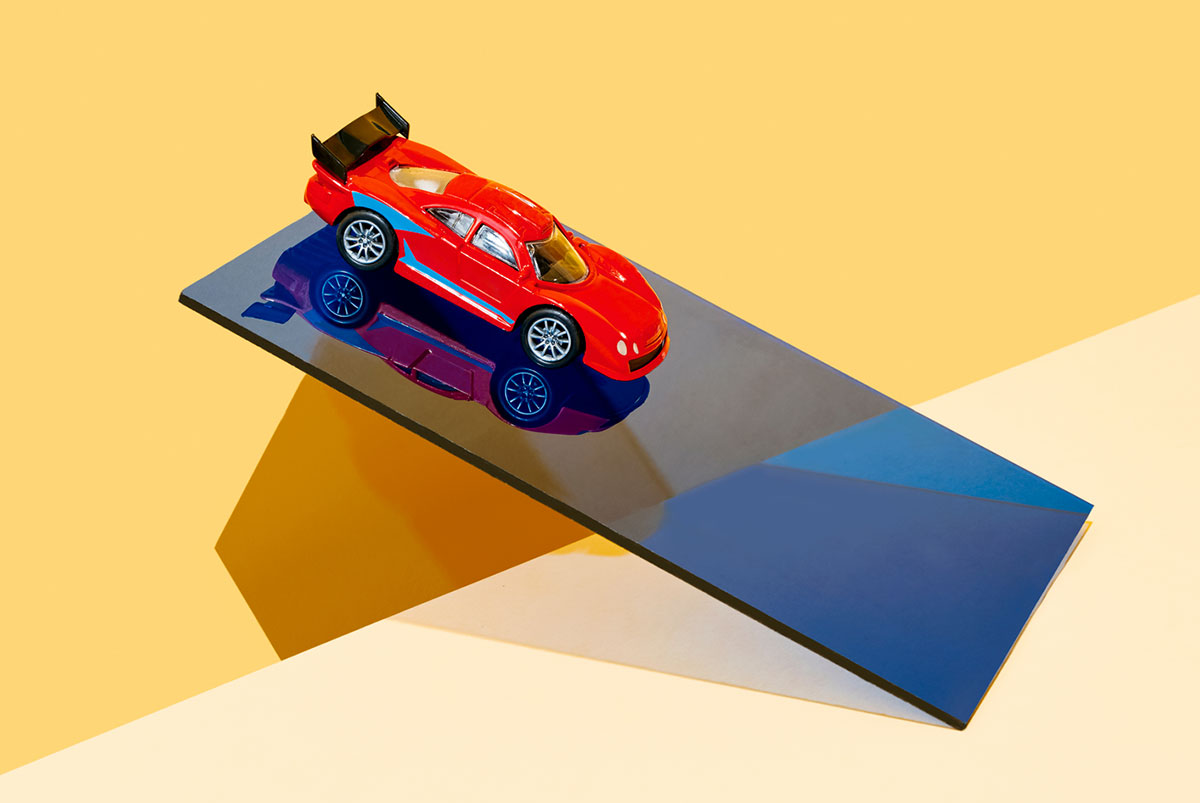Buying a new car and driving it off the lot is thrilling. But once that thrill fades away, you may start to wonder if you got the best deal on your auto loan.
If your answer’s feeling like a no, refinancing your loan is always an option – which is great – but how long should you wait to refinance?
Technically you’ll need to wait at least 60 – 90 days to refinance because it takes about that long for the title on the car to fully transfer to your name. After that, you can refinance at any time.
But, if you want to get the most benefit out of refinancing your loan, you’ll want to wait until the time – and your financial situation – is right.
Wait Until You Understand How To Refinance a Car Loan
Refinancing your auto loan means that you apply for a new loan. When you refinance, your loan essentially starts over. Your new loan will come with new loan terms, including a new interest rate and loan repayment term.
Before you can refinance your auto loan, you’ll need to collect all of the necessary paperwork. This can include your:
- Driver’s license
- Car registration
- Proof of insurance (your lender may require a certain level of coverage)
- Proof of income (paystubs, W-2s, tax returns or profit and loss statements if you’re self-employed)
- Proof of residence (usually a utility bill, lease or insurance statement with your home address will do the trick)
- Title (you can get a copy from your local DMV)
- Car’s information (including current mileage, VIN and any accidents or damage)
If your credit score is in the low 600s or lower, or if you have missed payments or have other issues with your credit history, you may need to provide credit card or other loan statements to show that you’re able to pay your bills.
Wait for the Right Reason To Refinance
Be honest about why you want to refinance your auto loan. Here are the top reasons why car owners refinance:
- Lower monthly loan payment: You can lower your monthly payments by refinancing to a lower interest rate or waiting for auto industry interest rates to go down.
- Pay off your car loan faster: If you have a car loan with a repayment term that’s 60 – 84 months long (5 – 7 years), refinancing can help you shorten the loan term, and that can help you own your car sooner.
If you’re facing a cash crunch and need to lower your monthly expenses but can’t get a better interest rate, re-extending your auto loan at the same interest rate over a longer term can also help lower your monthly payments, but it’ll cost you more in interest over the life of the loan.
Wait Until You Can Show That You Can Make Your Payments
Before they consider you for a refinance loan, lenders will want to see that you made monthly payments on time and in full. If you owned a car before and you have good credit (a score in the mid-600s or higher), 6 months of consistent payments should help prove your creditworthiness.
If you’re a first-time car owner or your credit is hovering at the lower end of the spectrum, you’ll want to wait at least a year before you refinance. That should give you enough time to demonstrate that you can make your payments on time and in full over a significant period.
Wait for Your Credit Score To Improve
Your credit score likely dropped after you bought your car, especially if it was the first time you made a purchase of that size.
If your credit score is in the mid-600s or higher, you can probably start shopping for a new loan after about 6 months. That’ll give your credit score time to recover, and it’ll help you build a consistent repayment history (which is something lenders look for).
On the other hand, if your credit score is in the low 600s or lower, you may want to wait a little longer before you refinance and start taking steps to improve your credit score.
Wait for Interest Rates To Go Down
The refinance interest rates lenders offer can depend on a lot of factors that are outside of your control. The global economy, the Federal Reserve and the state of the auto industry can cause auto refinancing interest rates to go up or down.
While a recession or market downturn may cause some variation, interest rates don’t usually change drastically overnight. In fact, since 2011, the finance rate on auto loans from commercial banks has stayed between 4% – 6%.[1]
Wait To Not Be Underwater
Unlike homes, cars tend to depreciate (read: lose value) over time. This is especially true with new cars because they’re considered “used” as soon as you sign the paperwork.
If your loan repayment term is longer than 60 months (5 years), you run the additional risk of your car losing value faster than you can pay it off. This is one reason why you should think long and hard before you buy an expensive car and justify the purchase because you were able to stretch out the payments.
Lenders want to know that they’ll see a return on their investment, which is why a car loan is a secured loan. Secured loans require collateral. And in this case, the collateral would be your car.
If you find yourself owing more on the car loan than what the car is worth, that means you’re underwater on your car loan, and lenders may not be willing to refinance.
Wait To See How Refinancing Will Affect Your Car Insurance
Talk to your insurance company to see if refinancing will affect your policy. Chances are that you won’t see an increase in your car insurance premiums. You may even see a decrease since your car’s value has depreciated. Every insurer is different, so make sure to call and ask.
Wait To See What It Will Cost You
Most of the time, an auto refinance loan doesn’t come with closing costs like origination fees or processing fees. You may need to pay a title fee, but that usually doesn’t cost more than $100.
However, your existing loan may include a prepayment penalty. Prepayment charges can vary from a fixed fee to paying off all of the remaining interest on the loan. Check and see if your loan comes with a prepayment penalty. If it does, make sure the fee doesn’t cancel out what you’d save by refinancing.
Wait To Find the Best Rate
Dealer financing can be competitive. When dealers make offers, there’s nothing to stop them from recommending the financing options that work best for them.
Take some time to shop around for a good interest rate with another financial institution or lender. Your local credit union or an online lender may have competitive car loan refinancing rates.
But Don’t Wait Too Long
If you wait too long, you may lose out on any of the benefits of refinancing. To see a benefit, you’ll want to have at least 2 years left on your current loan.
Also, different lenders have different refinancing requirements. In addition to your credit score and payment history, lenders will look at the size of your loan balance and the age or mileage on the car.
If you hold on to your car too long, your lender may decide that the car’s condition or the size of the loan makes it ineligible for refinancing.
The Short Version
- You’ll need to wait at least 60 days after you buy your car to refinance it
- Waiting 6 months to a year to refinance will give your credit score time to recover while you prove that you can make your car payments
- Don’t wait too long! If your car loses too much value compared to what you owe on your loan, you may not qualify for refinancing
Board of Governors of the Federal Reserve Systems. “Finance Rate on Consumer Installment Loans at Commercial Banks, New Autos 48 Month Loan.” Retrieved October 2021 from https://fred.stlouisfed.org/series/TERMCBAUTO48NS#0




